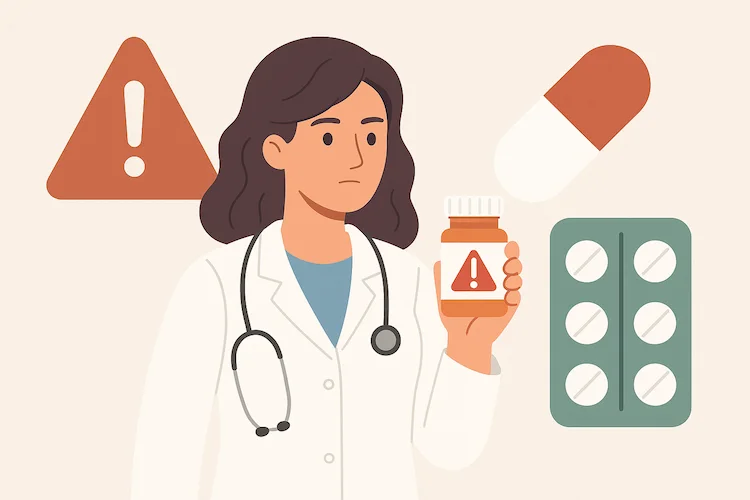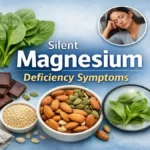Introduction: Blood Pressure Medication Recalls in the U.S.
In 2025. Several blood pressure medication recalls have made headlines across the United States. The FDA recalled blood pressure medication- including prazosin hydrochloride capsules – after detecting a potentially cancer-causing impurity.
Millions of Americans rely on these high blood pressure medications, making the recall both concerning and crucial for public health. This article explains which blood pressure medication was recalled, why the FDA took this step, and what patients can do to stay safe.
Why Did the FDA Recall Blood Pressure Medications?
The FDA recall was initiated after certain batches of blood pressure drugs tested positive for nitrosamine impurities – specifically N-nitroso Prazosin impurity C. Nitrosamines are chemical compounds that, in high amounts and prolonged exposure, may increase the risk of cancer.
These impurities can form during the manufacturing process, especially when specific solvents or raw materials react under certain conditions.
In recent years, several blood pressure medications recalled by the FDA have shared a common reason: unsafe impurity levels that exceed the agency’s acceptable daily intake limits.
According to the U.S. Food and Drug Administration (FDA), this recall aims to prevent long-term health risks rather than respond to immediate danger. The affected drugs were distributed nationwide, so pharmacists and patients are urged to check lot numbers and expiration dates.
Which Blood Pressure Medication Was Recalled in 2025?
The most recent blood pressure medication recalled is prazosin hydrochloride capsules, widely prescribed for hypertension (high blood pressure) and, in some cases, for PTSD-related nightmares.

In October 2025, Teva Pharmaceuticals USA and Amerisource Health Services announced a Class II recall after FDA testing found the presence of N-nitroso Prazosin impurity C.
A Class II recall means that exposure to the product may cause temporary or medically reversible health effects, but serious outcomes are unlikely.
Prazosin Hydrochloride Capsules Recall Details
- Drug name: Prazosin Hydrochloride Capsules
- Strengths: 1 mg, 2 mg, and 5 mg
- Reason for recall: Presence of N-nitroso Prazosin impurity C
- Recall classification: Class II
- Distributed by: Teva Pharmaceuticals & Amerisource Health Services
- Affected areas: Nationwide across the United States
The FDA recalled blood pressure medication not because patients were showing adverse effects, but to proactively protect them from possible long-term cancer risk.
What Blood Pressure Medication Recall Means for Patients
If you are currently taking prazosin hydrochloride capsule or any recalled blood pressure medication, don’t panic—but do act responsibly
Stopping your medication suddenly can be dangerous, especially if you rely on it for controlling hypertension.
Here’s what experts recommend:
- Do not stop taking your medication abruptly.
Consult your doctor or pharmacist first. Sudden withdrawal can spike your blood pressure dangerously. - Check the label and lot number.
Look for the manufacturing details on your pill bottle or packaging. Compare them with the FDA’s recall list available on fda.gov. - Contact your pharmacy or healthcare provider.
They can verify whether your medication batch is affected and suggest a safe replacement. - Report any unusual symptoms.
If you’ve experienced unexpected side effects, you can report them to the FDA’s MedWatch Adverse Event Reporting program.
High Blood Pressure Medication Recalled List (Recent Years)
The recall of prazosin hydrochloride is not unique. In recent years, several other high blood pressure medications have been recalled for similar reasons—primarily due to nitrosamine contamination.
| Drug Name | Reason for Recall | Year | Notes |
| Losartan | NDMA impurity detected | 2019–2021 | One of the largest ARB recalls |
| Valsartan | NDEA impurity contamination | 2018 | Linked to imported API from China |
| Irbesartan | N-Nitrosoirbesartan found | 2020 | Voluntary recall by multiple manufacturers |
| Metoprolol Succinate (ER) | Failed dissolution testing | 2024 | Did not meet FDA performance standards |
| Prazosin Hydrochloride | Nitrosamine impurity (N-nitroso Prazosin) | 2025 | Latest recall affecting multiple batches |
These recalled blood pressure medications highlight the need for stricter quality control and better monitoring of drug manufacturing processes.
Which Blood Pressure Medication Is Safe Now?
The FDA emphasizes that not all blood pressure medications will be affected by the recall. If your doctor has prescribed alternative medications such as amlodipine, lisinopril, or hydrochlorothiazide (HCTZ), they remain safe and effective for most patients.
However, always confirm with your healthcare provider before switching.
Sometimes the safest option is simply to replace your current bottle with a verified, unaffected batch of the same medication.
How the FDA Handles Drug Recalls
When the FDA recalls a blood pressure medication, the process follows a clear and systematic approach:
- Detection: Impurities or quality issues identified during testing or through manufacturer reports.
- Evaluation: FDA scientists assess potential health risks.
- Classification: The recall is labeled as Class I, II, or III based on risk severity.
- Public Notification: FDA issues an announcement to pharmacies, doctors, and the public.
- Corrective Action: Manufacturers retrieve affected batches and investigate root causes.
This process ensures that only safe and compliant medications remain in circulation.
Understanding Nitrosamine Impurities
Nitrosamines. Such as NDMA, NDEA, and N-nitroso impurities, are byproducts that can form during drug synthesis.
Although trace amounts can be found in various foods and water supplies, laboratory studies have found that long-term exposure to high levels is linked to cancer.
The FDA’s acceptable daily intake limit for nitrosamines is extremely low, and even slight exceedances can trigger a recall.
By recalling affected products, the agency minimizes patient risk before any harm occurs.
Patient Safety Tips During a Blood Pressure Med Recall
Here are important safety reminders for those concerned about the recalled blood pressure medication products:
- Always store medications properly – away from heat and moisture.
- Register for FDA recall alerts at FDA.gov.
- Do not buy medications from unverified online pharmacies.
- Keep your doctor informed about every supplement or medicine you take.
FDA’s Commitment to Drug Quality
The FDA conducts ongoing inspections and testing to identify potential contamination risks early.
Since the first ARB recall in 2018, the agency has strengthened global supply chain oversight, requiring drugmakers to use cleaner manufacturing techniques and improved analytical methods.
The 2025 prazosin hydrochloride recall reflects not failure but vigilance — an example of how the U.S. drug safety system works to protect patients proactively.
FAQs About Blood Pressure Medication Recalls
What blood pressure medication was recalled in 2025?
The FDA recalled prazosin hydrochloride capsules due to the detection of N-nitroso prazosin impurity C, a potential carcinogen.
Which blood pressure medication is currently on the recall list?
As of October 2025, prazosin hydrochloride capsules (1 mg, 2 mg, 5 mg) are included in the recall notice by Teva Pharmaceuticals USA.
What should I do if my blood pressure medication is recalled?
Don’t stop taking your medicine without talking to your doctor. Check your lot number, visit FDA’s recall database, and get a verified replacement.
Is prazosin hydrochloride dangerous?
Not inherently. The impurity was the concern, not the drug itself. When manufactured correctly, prazosin is a safe and effective treatment for high blood pressure and PTSD.
Conclusion: Staying Safe Amid Blood Pressure Medication Recalls
The recent blood pressure medication recalls – especially the FDA recall of prazosin hydrochloride capsules – remind us how vital transparency and testing are in modern healthcare.
While the term “recalled” can sound alarming, it often reflects preventive action, not panic.
Patients should remain calm and fully informed and always consult with healthcare professionals before making any changes to their treatment. With continued FDA monitoring and responsible patient awareness, the safety of high blood pressure medications in the United States will continue to improve.
Read also: New High Blood Pressure Guideline Emphasizes Prevention and Early Treatment to Reduce CVD Risk






